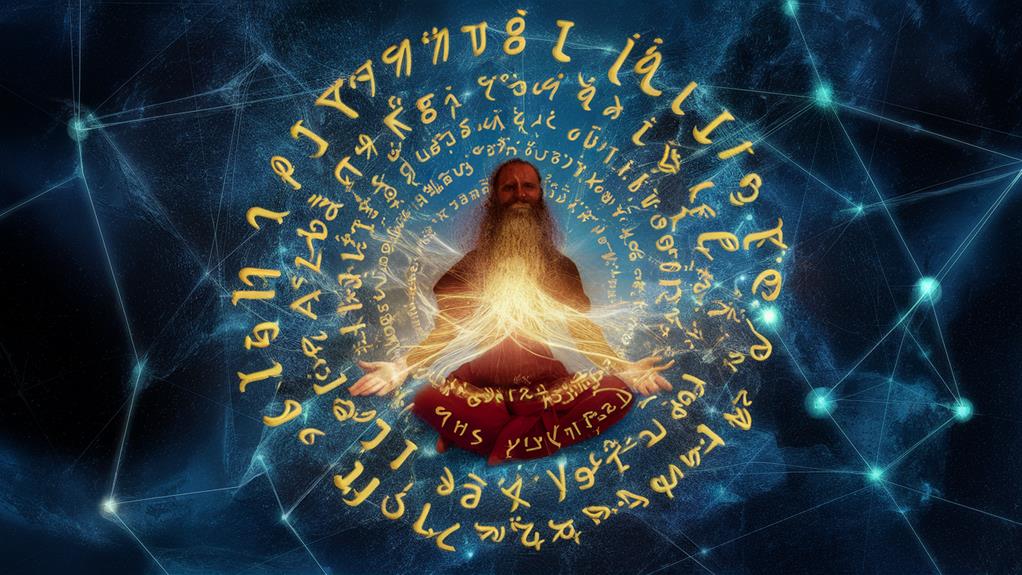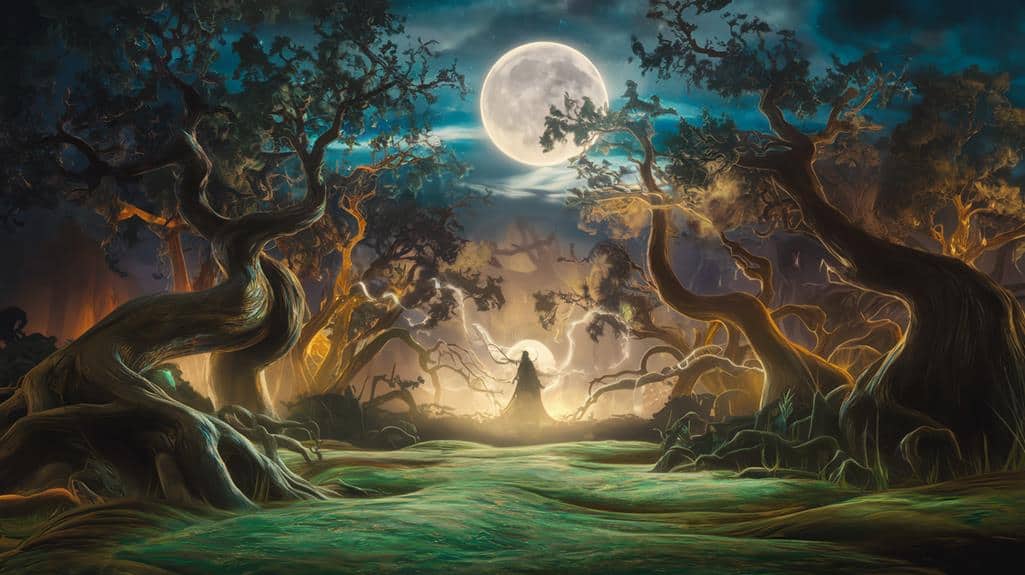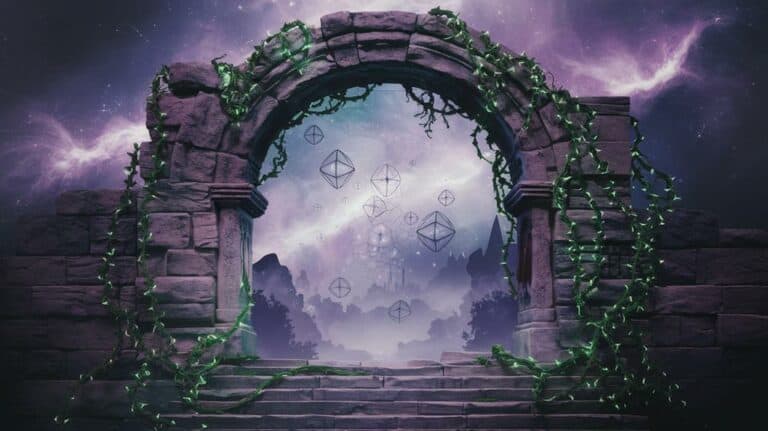Just What Is Mysticism Anyway? and Why Should Anyone Care?
Mysticism is a profound and complex phenomenon that involves a deep, often ineffable, connection with what is perceived as ultimate reality. When you explore mysticism, you’re venturing into a domain that transcends ordinary human comprehension, where individuals seek a union with a divine or universal entity. This journey can manifest in various forms, such as theistic mysticism, where one unites with God, or nontheistic mysticism, which involves a monistic unity with the universe. As you consider mysticism, you’ll find it intertwined with diverse cultural and religious traditions, each offering unique practices and philosophical underpinnings that can lead to transformative personal growth and a deeper sense of interconnectedness. But what exactly does this mean for your understanding of the world and your place in it?
Defining Mysticism

Mysticism is a complex and multifaceted concept that has evolved over centuries, encompassing a wide range of spiritual and religious experiences. At its core, mysticism involves a deep, often ineffable, encounter with a sacred or ultimate reality. This can be described as a union with God, the Absolute, or the Infinite, though it isn’t limited to theistic frameworks.
Mystical experiences are characterized by several key elements. They often involve altered states of consciousness, such as trance, visions, or ecstasy, which can lead to a direct intuition or experience of the divine. These experiences are frequently marked by transiency, passivity, a noetic quality (a sense of gaining insight or knowledge), and ineffability (the inability to be fully expressed in words).
Mysticism can take various forms, from the contemplative and liturgical dimensions of early Christianity to the ecstatic practices of Eastern mysticism. It may include practices such as meditation, breath control, and the withdrawal of the senses, all aimed at achieving a unified or transcendent state.
In essence, mysticism is about experiencing a profound connection to something greater than oneself, a mysterious and often inexpressible reality that transcends ordinary understanding. This experience is deeply personal and transformative, leading individuals to a new level of insight and spiritual awareness.
Types of Mystical Experiences
Various forms of mystical experiences have been identified and categorized by scholars, each with distinct characteristics and outcomes. One of the most notable distinctions is between extrovertive and introvertive mysticism, as outlined by W.T. Stace.
Extrovertive mysticism involves an experience of unity within the world, where you feel a deep sense of connectedness with all objects of perception. This experience maintains continuity with the external world, yet you perceive a unified, holistic reality underlying all things.
In contrast, introvertive mysticism is characterized by a unity devoid of perceptual objects, often described as an experience of “no-thing-ness” or pure consciousness. Here, you transcend the boundaries of space and time, immersing yourself in a non-spatial, non-temporal state of being.
R.C. Zaehner further categorizes mysticism into theistic, monistic, and natural or panenhenic types.
Theistic mysticism, common in Jewish, Christian, and Islamic traditions, involves a personal relationship with God.
Monistic mysticism, found in early Buddhism and Advaita Vedanta, seeks unity with a universal, impersonal reality.
Natural mysticism, seen in Zen Buddhism and Taoism, emphasizes an experience of unity with Nature itself.
Each of these forms invites you to explore profound depths of human consciousness, offering unique pathways to understanding and experiencing the ultimate reality.
Extrovertive and Introvertive Mysticism

In W.T. Stace‘s seminal work, *Mysticism and Philosophy*, he delineates two distinct types of mystical experiences: extrovertive and introvertive. These categories invite you to reflect on how the profound and the divine can be encountered in fundamentally different ways.
Extrovertive mystical experiences involve a outward-reaching perception, where you see the unity of the world through your physical senses. Imagine standing before a breathtaking sunset, and instead of just seeing the colors and shapes, you perceive the entire scene as imbued with a unified, divine presence. This experience transcends the ordinary sensory input, revealing the “One” or the “Unity” that underlies all external objects.
Here, the multiplicity of the world is mystically transfigured, allowing you to see the divine in every aspect of nature.
In contrast, introvertive mystical experiences are deeply inward-facing. You turn away from the external world, shutting off your senses and plunging into the depths of your own consciousness. This journey into the self leads to a state where all sensory, conceptual, and empirical content is excluded, leaving only a pure, undifferentiated unity.
This is an experience of the “One” at its most fundamental, unadulterated level, a union with the ultimate reality that lies at the core of your being. Both types of experiences culminate in the perception of, and union with, this Unity, each offering a unique pathway to profound spiritual insight and transformation.
Cultural and Religious Contexts
When you explore the world of mysticism, you find that it’s deeply rooted in diverse cultural and religious contexts. Mystical experiences, though often described as universal and transcendent, are shaped by the language, religious background, and social factors of the cultures in which they occur.
For instance, Christian contemplative prayer, Buddhist enlightenment, and indigenous vision quests all share common elements like altered states and unity with the divine, yet they differ considerably in techniques and interpretations.
The cultural context influences how mystical experiences are described and understood. In Eastern religions, mystical experiences are often more readily accepted and integrated into the religious framework, whereas in Western traditions, particularly Roman Catholicism, such experiences have historically been viewed with suspicion and seen as threats to church doctrine.
Mystics across different traditions use various methods to articulate the indescribable nature of their experiences. Poetry, metaphor, parable, and myth are common tools to convey the depth and complexity of mystical encounters.
This universal struggle with language underscores the inherent ineffability of the highest spiritual experiences, a reality acknowledged across diverse mystical traditions.
The Role of Language and Expression

The role of language and expression in mysticism is essential, as it attempts to capture the essence of experiences that often transcend verbal description. You find yourself maneuvering a domain where words serve both as bridges and barriers. In mystical traditions, language is seen as a divine force, embodying the creative power that shapes reality. For instance, in Jewish mysticism, the letters of the sacred language are viewed as configurations of the divine creative force, acting as a ladder connecting earth to heaven.
However, this divine language also poses a challenge. Mystical experiences are inherently nonconceptual and ineffable, making language an imperfect vehicle for their expression. You may use negative descriptions, as seen in Indian spiritual traditions, to describe what these states are not, rather than what they are. This “semantic destruction of language” helps to minimize distortion and grant access to the experience beyond words.
In this paradoxical dance, language both enhances and limits your understanding. Mystics often manipulate language to facilitate the experience, using poetry, metaphor, and parable to articulate the indescribable.
As you explore deeper, you realize that language isn’t just a tool but a reflection of the multifaceted nature of the divine, inviting you to transcend the confines of ordinary expression and connect with the deeper, mystical source of all languages.
Transformative Nature of Mysticism
Mystical experiences can change your life’s trajectory, inspiring you to live with a newfound sense of purpose. These encounters, whether through meditation, prayer, or unexpected moments of awe, can make you feel deeply connected to all living beings and the cosmos.
This sense of interconnectedness fosters empathy, compassion, and a sense of responsibility, shifting your perspective from isolation to unity.
In this transformative journey, you may find healing and resolution from past wounds, and a profound sense of peace and acceptance. The insights gained from these experiences can guide you towards a more meaningful life, one that aligns with a higher, transcendent reality.
As you integrate these experiences into your daily life, you’re likely to promote peace, justice, and environmental stewardship, contributing to a more compassionate and purpose-driven society.
Philosophical and Spiritual Implications

Mysticism explores deep into the territories of philosophy and spirituality, often blurring the lines between these disciplines. As you investigate mystical experiences, you encounter a dimension where the boundaries between the self and the ultimate reality begin to dissolve. This unitive experience, characterized by a sense of oneness and timelessness, is often described as ineffable, defying the limits of language to capture its essence.
Philosophically, mysticism challenges traditional epistemological frameworks by suggesting that knowledge can be gained through direct, non-sensory perception. Mystics argue that these experiences provide a noetic quality, a strong sense of gaining genuine and unmediated insights into ultimate reality. This cognitive dimension of mystical experience posits that the mystic isn’t just a passive recipient but an active participant in the process of knowing.
Spiritually, mysticism invites you to begin a journey of self-discovery and transformation. It’s a path where the distinction between the inner and outer worlds fades, and the search for God becomes a search for the deepest aspects of your own soul.
This journey, as described by mystics like Thomas Merton, involves working together with a higher power to create your own life and destiny, leading to a profound alignment of your will with the divine.
Justification of Religious Beliefs
When you explore into the heart of mystical experiences, you often find that mystics argue these experiences serve as a powerful justification for their religious beliefs. These experiences, often described as union with the Divine or the Absolute, are seen as direct intuitions or encounters with a transcendent reality that surpasses mundane understanding.
Mystics contend that these experiences provide a certainty about the divine or a transcendental reality that isn’t accessible through human intellect alone. For instance, in Christian mysticism, the goal is to achieve a spiritual marriage with God, a state where one’s will is fully aligned with God’s, as described by medieval mystics like Bernard of Clairvaux and Teresa of Avila.
This justification isn’t merely intellectual but deeply personal and transformative. Mystics believe that these experiences lead to an enduring state of consciousness, a personal transformation that’s the essence of mysticism. This transformation is seen as evidence of the truth of their mystical claims, offering a profound sense of alignment with the way things really are, as defined by their tradition.
In this context, mysticism isn’t just about fleeting experiences but about a way of life, a continuous pursuit of spiritual awareness and contemplation that validates and deepens their faith. This approach invites you to engage with the divine in a manner that transcends verbal descriptions, tapping into a sacred mystery that’s both ineffable and profoundly transformative.
Conclusion
As you reflect on the depths of mysticism, you are invited to embrace a journey that transcends the mundane, connecting you with the essence of the universe. Mystical experiences, whether extrovertive or introvertive, offer a unitive glimpse into ultimate realities, fostering a profound sense of unity and personal transformation. In this sacred exploration, language falters, yet the silence speaks volumes. Let the transformative power of mysticism guide you toward a more meaningful, interconnected existence, where the boundaries of self dissolve, and the infinity of being unfolds.









